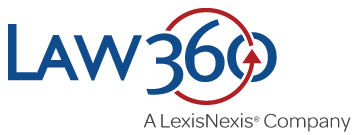CoStar purchased the leading CRE company, LoopNet, for $860 million in 2012, which the Federal Trade Commission permitted with a mandatory divestiture that resulted in the acquisition of Xceligent by new owner The Daily Mail Group. LoopNet’s biggest and most valuable asset is a massive electronic database of commercial properties, with associated metrics and photographs.
Instead of doing what an upstart firm should and design a “better mousetrap,” Xceligent apparently went rogue. According to CoStar in its 2016 lawsuit, Xceligent is engaged in commercial piracy on an “industrial scale,” hacking into CoStar’s CRE database with thousands of overseas “researchers” in what CoStar describes as a scheme “to steal CoStar-copyrighted photographs and proprietary real estate data in breach of contract and in violation of state and federal law.” (CoStar’s complaint includes screenshots of Xceligent researchers copying content from CoStar’s LoopNet website into Xceligent’s database, along with thousands of CoStar’s copyrighted images published on Xceligent website, with many remarkably still bearing CoStar’s own watermark.)
Not content merely with defending, Xceligent countersued for defamation and monopolization. Xceligent maintains that CoStar monopolized the CRE market by refusing to allow Xceligent access to CoStar data in order for its competitor to “build a CRE database with the national coverage necessary for Xceligent to effectively compete.”
This is a startling claim: Xceligent is contending it cannot offer an independently derived database to customers, and instead needs to piggyback on a rival to enter the market. Yet the idea that CoStar is obligated as an antitrust matter to help Xceligent develop a competing CRE product totally lacks legal validity. Thirteen years ago, the late Justice Antonin Scalia established for the U.S. Supreme Court that what antitrust lawyers call a “unilateral refusal to deal,” even by a monopolist, does not violate the Sherman Antitrust Act unless there is some duty to deal imposed by a nonantitrust area of the law. “Insufficient assistance in the provision of service to rivals is not a recognized antitrust claim,” he wrote flatly. The courts have rightfully been “very cautious” in recognizing exceptions to the long-time rule that “entirely private businesses” may “freely exercise” their own “independent discretion as to the parties with whom [they] will deal.”
That is precisely the problem with the present attempt by Xceligent to morph a sordid case about industrial espionage into a counterclaim for unlawful monopolization. It is applying antitrust law to try and achieve an anti-competitive result. Why shouldn’t Airbus, for instance, be free to use Boeing’s proprietary designs for the technologically advanced 787 Dreamliner? Why shouldn’t Apple have been legally empowered simply to scrape all the data from Google Maps when it decided to launch its own Apple-branded navigation service several years ago?
The answer is that this is simply not how competitive markets function or should work. Firms make their own products and consumers — also known as market forces — pick winners and losers. We do not force any company to help another, even if they have become what the Europeans term a “dominant undertaking,” since that would fundamentally decrease or eliminate the financial and economic incentives for research and development, product design and, indeed, marketplace competition itself. This refusal to allow antitrust law to be applied as a subsidy (i.e., protection) for some rivals solely because they are smaller and face financial challenges is what distinguishes the robust U.S. economy from the relatively moribund economies across the E.U. And thankfully so.
The Xceligent monopolization claim epitomizes the unpredictability caused by expanding antitrust to the highly subjective area of cooperation between horizontal rivals. Unlike an older decision (Aspen Skiing) — described by the Supreme Court as being at the “outer limits” of antitrust jurisprudence — CoStar has not reversed a prior practice of sharing its assets with rivals. The Xceligent theory smacks of an archaic and now-rejected antitrust rule compelling competitor access to so-called “essential facilities” — a phrase its lawyers were interestingly afraid to utter. Like the one-time ban on what was then termed “monopoly leveraging,” and an even earlier prohibition of exclusive sales territories for retail dealers, the essential facilities doctrine has rightfully been consigned to the dustbin of antitrust history. How and why judges or juries should get to decide what facilities are “essential” to competition is a legal and policy question Xceligent cannot answer, precisely because it is betting on that very subjectivity as the heart of its antitrust lawsuit.
Time was, some 50 years ago, when the federal courts embraced a view of antitrust law that catered to such protectionist instincts. That led to very weird decisions — for instance condemning grocery store mergers when the firms had miniscule market shares — which not even the most extreme advocates for aggressive antitrust enforcement would support today. We should not return to an era when rivals were able to make strategic — and unprincipled — use of antitrust doctrine to demand special treatment to save themselves from the brutal consequences of competitive failure. America should not let antitrust itself become anticompetitive.
Originally prepared for and reposted with permission of Law360.



